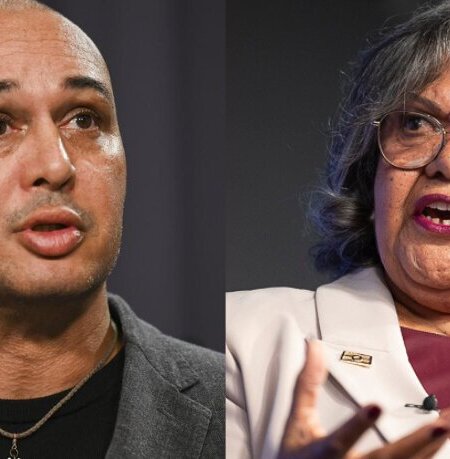The commitment the Prime Minister made earlier this year to listen to Aboriginal voices and work in partnership with them seems to have gone out the window already, as this rushed Bill faces strong opposition from NT Aboriginal voices. How the five cross bench Senators (Jackie Lambie, Pauline Hanson, Malcolm Roberts, Rebekah Sharkie and Rex Patrick) vote will be critical to the fate of this Bill and the lives of people targeted for the CDC.
The CDC program, which was evaluated inadequately in 2017, began in 2016 as “trials” in Ceduna and the East Kimberley, and now includes the Goldfields in WA and Queensland’s Bundaberg region. A second evaluation has now been completed but, the Minister has not read it before introducing the Bill, and the Government appears unwilling to release it until after the Bill has passed, which makes one wonder about its findings. Evidence for the success of the program is scant and flimsy at best.
The CDC had its genesis in Andrew Forrest’s Review of Indigenous employment and training, while income management in the Northern Territory (currently the Basics Card) began as an Indigenous-specific policy as part of the Northern Territory Emergency Response.
The CDC program disproportionately impacts Aboriginal and Torres Strait Islander people. They account for 76% of participants in Ceduna, 82% in the East Kimberley, 48% in Goldfields, and 18% in Bundaberg region. In the Northern Territory, 83% of those who would be transitioned from the Basics Card to the CDC are Aboriginal and Torres Strait Islander people.
Prime Minister Morrison’s Closing the Gap Speech in February acknowledged past mistakes in Aboriginal and Torres Strait Islander policy:
We perpetuated an ingrained way of thinking, passed down over two centuries and more, and it was the belief that we knew better than our Indigenous peoples. We don’t. We also thought we understood their problems better than they did. We don’t. They live them…
He went on to proudly announce a new approach:
An approach that is built on partnership. On giving back responsibility. An approach of listening. Of empowering.
Then in July 2020, the landmark National Agreement on Closing the Gap was signed by all jurisdictions and the Coalition of Peak Aboriginal organisations, committing to ‘a future where policy making that impacts on the lives of Aboriginal and Torres Strait Islander people is done in full and genuine partnership.’
If the Commonwealth wants effective policy, it must do what its July 2020 Agreement says and “…listen to the voices and aspirations of Aboriginal and Torres Strait Islander people and change the way… [government] work[s] in response” (p. 4).
Aboriginal and Torres Strait Islander people in the Northern Territory affected by this expansion are not being listened to and are not being treated as partners. The Aboriginal Peak Organisations Northern Territory (APONT), representing the Central Land Council (CLC), Aboriginal Housing NT (AHNT) and the Aboriginal Medical Services Alliance of the NT (AMSANT), argue that:
The Bill… will perpetuate the torment of our powerlessness. It denies our basic freedom to control our lives. It locks the many of us who live below the poverty line out of the cash economy….. We are sick of governments doing things to us, rather than with us.
Even previous advocates of income management in the Northern Territory now oppose the Bill. The Ngaanyatjarra, Pitjantjatjara, Yankunytjatjara Women’s Council (NPYWC) was once the most prominent First Nations organisation supporting income management in the Northern Territory. After witnessing it in operation for over a decade, the Council now opposes the Cashless Debit Card.
NPYWC believes the scheme will create a lack of empowerment for impoverished people and not address the root cause of poverty and substance misuse… The CDC will act to disempower remote community recipients and “bring them back to when our ancestors first walked into the missions and were fed by rations”.
The Northern Territory Government also opposes the Bill, as it is in conflict with their own policies.
It is time to act on the lessons of the last decade, not repeat past mistakes.
The Bill represents a continuation of the failed ‘Government knows best’ approach to policy making that the Prime Minister disavowed in February. It is time for the costly policy to end and funds be redirected to approaches that we know work to reduce alcohol abuse and violence, and strengthen families.
For example, alcohol restrictions, an evidence-based strategy, seem to be having the greatest impact in the East Kimberley (Kununurra and Wyndham), according to WA Police statistics on offenses against persons. Such violent offences continued their upward trend after the card was introduced in 2016 through to 2018-19 after alcohol restrictions toughened up. That’s when the downward trend began. So yes things may have improved – but the CDC may have had little to do with the improvement.




